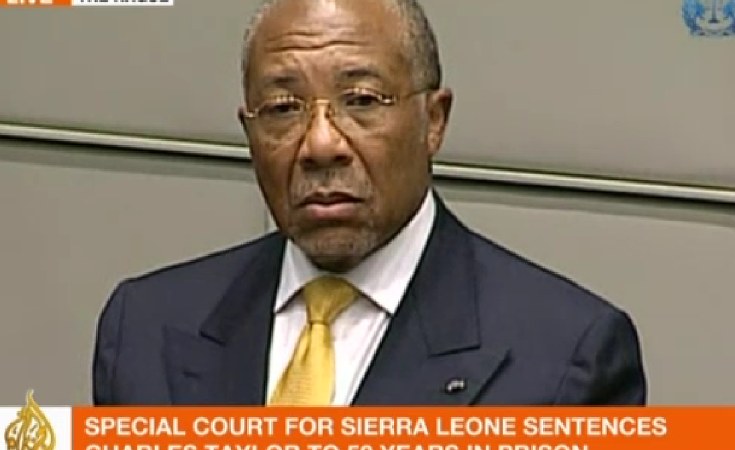Cape Town — The Special Court for Sierra Leone has sentenced former Liberian president Charles Taylor to 50 years' imprisonment for aiding and abetting war crimes in Sierra Leone.
He is expected to serve his sentence in a high security prison in the United Kingdom for his role in the 11-year civil war in Sierra Leone, which claimed about 50,000 lives.
Sentence was passed in The Hague in the Netherlands on Wednesday by a trial chamber of the court comprising Justice Richard Lussick, Justice Teresa Doherty and Justice Julia Sebutinde. Justice Sebutinde, who also serves on the International Court of Justice, is a Ugandan jurist who qualified at Makerere University. The court was set up jointly by the Government of Sierra Leone and the United Nations.
Passing sentence, Justice Lussick recalled testimonies of brutality from witnesses during the trial. In one he cited, a witness said she was forced to carry a bag filled with human heads dripping with blood.
Another witness said she was gang-raped and her mother's eyes were pulled out by rebels.
Amputees who had their limbs cut off in the war will now survive on charity, the judge said. Futhermore, child soldiers and young girls who were raped face stigmatisation.
Taylor denied direct involvement in the war crimes and asked the judge to show mercy, since he is 64 years old and can no longer be a threat to society.
Justice Lussick said the court viewed Taylor's crimes with "the utmost gravity". It rejected a number of defence pleas for mitigation, among them that Taylor had played a substantial role in the peace process and had secured the release of peacekeepers and other hostages during the war. The court said that while Taylor publicly professed to work for peace, he was secretly instigating conflict, and his help with hostages was not a significant mitigating factor.
Nor was Taylor's public service a mitigating factor, the court found, and the sympathy he expressed for victims of the war did not constitute "remorse that would merit recognition for sentencing purposes." The court found as an aggravating circumstance the fact that Taylor exploited the conflict for financial gain.
However, Justice Lussick rejected the prosecution plea for an 80-year prison sentence on the grounds that Taylor was not convicted on the most serious charges he faced. When convicting Taylor, the judges did not accept the prosecution's contention that Taylor had effective command and control over the Sierra Leone rebels he supported.
Before announcing sentence, the judge said there was no precedent for sentencing Taylor. Although his conviction was limited to planning, aiding and abetting crimes, as a head of state, he was "in a class of his own," the judge said, and "the gravity of his betrayal of public trust" had weighed with the court.
The case was heard in The Hague for fear that a trial in Sierra Leone could destabilise the region.


